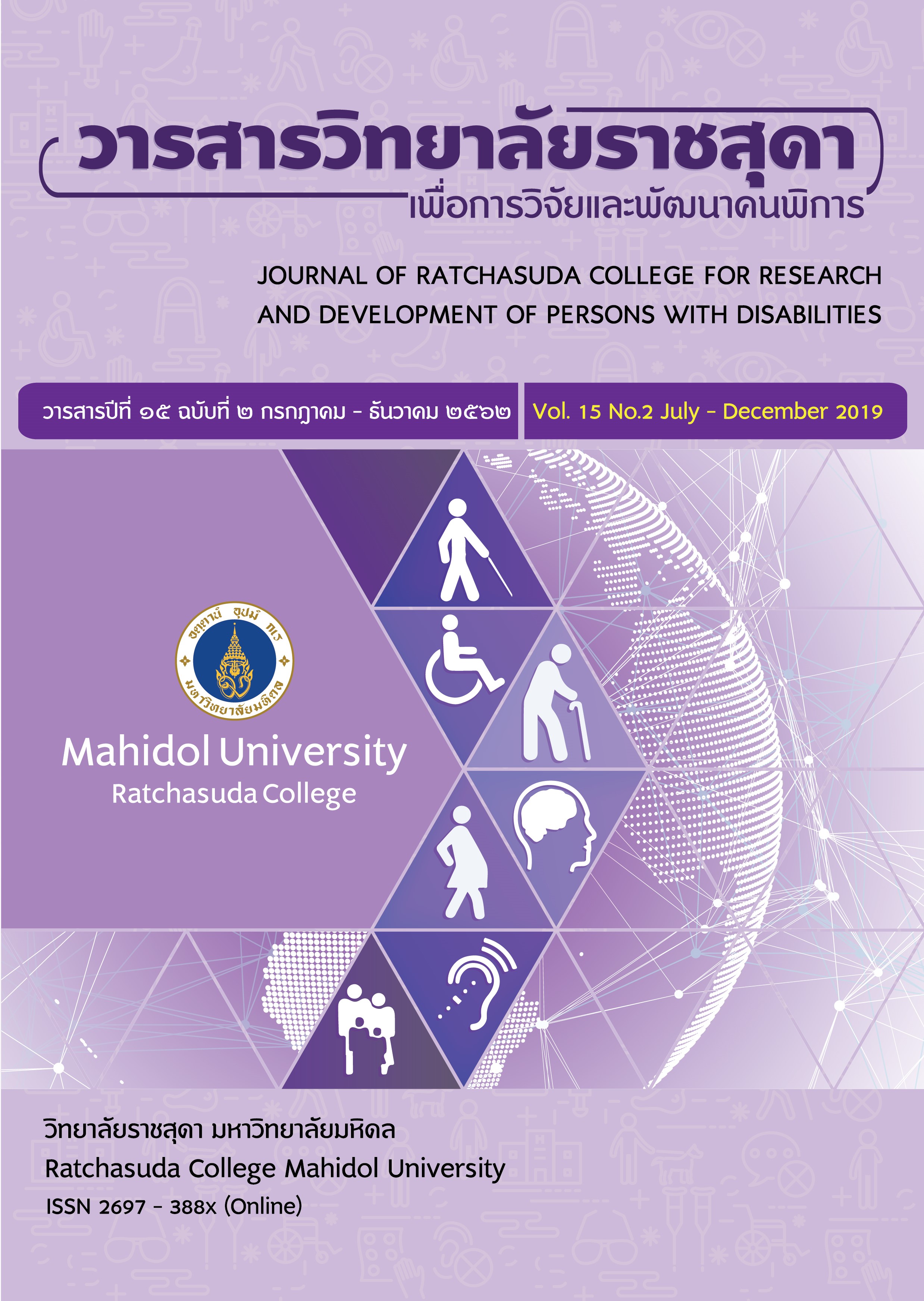An Authentic Assessment of Students with Special Educational Needs
Keywords:
Assessment, Authentic Assessment, Special Need StudentsAbstract
An authentic assessment is an alternative and effective tool that can be used with An authentic assessment is an alternative and effective tool that can be used with special educational need students. The tool focuses on the assessment of actual performance of individuals’ learning objectives. It covers the 3 student learning skills - cognitive, affective, and psychomotor. The test is mostly used for the assessment of cognitive skill whereas the observation and interview are widely used for the assessment of affective domain. The performance assessment and student folios are used in assessing psychomotor development. However, the selection of the tools suitable for the different needs of individual students is dependent on the judgment of the assessor. The special educational needs of individuals should be given a high concern; these include special assistance during the test required by individuals, the preparation of the test, testing rooms, testing facilities and environment, and testing schedule. This will help the test administrator effectively and efficiently manage the test, and consequently come up with an authentic result.
Downloads
References
Bruce, B. F., Vicki, L. S., & Justin, P. A. (2012). Defining authentic classroom assessment. Practical Assessment, Research & Evaluation, 17(2), 1-18.
Burke, K. (2009). How to assess authentic learning (5th ed.). Thousand Oaks, CA: Corwin.
Chookhampaeng, C. (2010). Learning assessment. Mahasarakham: Mahasarakham University Press.
Deemee, P., Phusavat, P., & Rattanakad, W. (2016). Learning assessment techniques for the 21st century. The Journal of Thailand Basic Education Community on Measurement and Evaluation. 3: 10-12. Retrieved from http://bet.obec.go.th/index/wp-content/uploads/2017/01/e-book_594.pdf
Elsworth, S. (2017). Definition of authentic assessment & why it is useful with students with special needs. Retrieved from https://classroom.synonym.com/definition-authentic-assessment-useful-students-special-needs-6725.html
Linn, R. L., & Miller, M. D. (2005). Measurement and assessment in teaching (9th ed.). Columbus: Pearson Merrill Prentice Hall.
Ministry of Education. (2009). The ministry promulgation regarding criteria and types of the disable 2009, Government Gazette. No. 126, Special Volume 80d, Pages 45-47, June 8th, 2009.
Ministry of Education. (2018). Education development plan for the disable, volume 3 (2017- 2021). Bangkok: Ministry of Education.
Nitko, A. J., & Brookhart, S. M. (2007). Educational assessment of students (5th ed). Upper Saddle River, NJ: Pearson Education.
Office of the Royal Society. (2012). The royal institute education dictionary. Bangkok: Arun Printing Ltd., Part.
Pasiphol, S., Lawthong, N., & Tangdhanakanond, K. (2015). Measurement and evaluation of learning. Bangkok: Chulalongkorn University Press.
Phonok, J. (2018, 10 May). Authentic assessment. Daily News, p.23.
Special Education Bureau & Office of the Basic Education Commission. (2015). A guideline for the assessment of students with special needs. Bangkok: National Office of Buddhism.
Thumthong, B. (2013). Theories and development of instructional model. Bangkok: Triple Education Co.,Ltd.
Topithak, K. (2016). Assessing student’s learning in the 21st century: The authentic learning assessment. Retrieved from http://academic.rmutsv.ac.th/sites/academic.rmutsv.ac.th/ files/04.pdf
Vidhayasirinun, S. (2012). Volume 10, An assessment of special need students. A Compilation of Texts and Learning Management for the Disable. Nonthabury: School of Educational Studies, Sukhothai Thammathirat Open University.
Wiggins, G. P. (1993). Assessing student performance. San Francisco: Jossey-Bass Publishers.
Wongwanich, S. (2013). New approaches to learning assessment. Bangkok: Chulalongkorn University Press.
Downloads
Published
How to Cite
Issue
Section
License
บทความที่ได้รับการตีพิมพ์เป็นลิขสิทธิ์ของวารสารสถาบันราชสุดาเพื่อการวิจัยและพัฒนาคนพิการ






